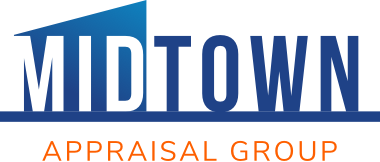If you’re like many Canadians, you’ve grown up thinking that one day, you’d be buying your own home. It seems like a pretty normal thing to do – until you’re actually doing it for the first time, yourself. When you find yourself actually signing paperwork committing you to hundreds of thousands of dollars over a couple of decades – well, it can suddenly seem like a very big deal.
But the more you know, the less stressful it can be. So here’s what you need to know about buying a home, especially if it’s your first.
Be realistic about what you can afford.
While the CMHC (the Canadian Mortgage and Housing Corporation) recommends that your monthly housing costs are no more than 32% of your gross monthly income, that’s really only the start of figuring out how much your household can really afford.
Your monthly housing costs include your mortgage payment, plus home insurance, property taxes and condo fees – and those can vary widely. If you have no other monthly expenses, you may be able to push a little higher than 32%. But if you have significant monthly expenses like car leases, school fees or credit card debt, you may need to go lower than 32%.
Trust the experts – but do your own homework.
Most of the time, the professionals involved in your homebuying process – from the real estate agents to the mortgage broker to the appraiser to the real estate lawyer – are going to be properly-trained professionals who will help you make the right decisions and ensure all your ducks are in order. And you’ll want to count on them, because the whole home-buying process can feel overwhelming.
However, it’s also important to make sure that you understand what you’re buying, the terms, and the risks. Don’t let anyone rush you through any part of the process; ask questions (and keep asking if you don’t get answers); and don’t be afraid to get a second opinion if you’re concerned.
Make sure you understand mortgages and how they differ.
If you’re a first-time home-buyer with good credit, chances are that banks and mortgage companies are interested in your business. But they may not always explain the pros and cons of the different products on offer.
An open mortgage, for example, allows you to pay off the principal at any time without penalties. This may be a good choice if you and your partner are expecting significant raises or bonuses, or are likely to receive significant inheritances in the next couple of years.
Closed mortgages, on the other hand, often have lower interest rates – but you’re agreeing to the loan terms for the length of the mortgage, and you can’t pay off the mortgage without paying significant penalties.
If you get a closed mortgage, you are agreeing to the terms of the loan exactly as they are for the length of the term. If you need to sell your home before the term is up, then you’ll be stuck paying a fee for breaking your term early.
Don’t underestimate property-related expenses
If you’re getting a standard mortgage from a reputable bank, credit union or mortgage company, they’ll probably make you provide documentation for things like home insurance, condo fees and property taxes (and in fact many mortgage companies will require or strongly encourage you to add the property taxes to your mortgage payments to ensure they’re paid).
However, owning a home involves all kinds of expenses that aren’t automatically included or easily predicted. Condo buildings may suddenly issue special assessments (an additional fee on top of your monthly condo fee to be used for a one-time or emergency improvement); a pipe may spring a leak and require major repairs; a particularly cold winter or hot summer may send utility costs skyrocketing.
You don’t have to panic about the prospect of unexpected expenses. But you do have to factor them in when you’re thinking about how much mortgage you can afford and how to ensure you’re not ‘house poor’.
Moving and closing costs
When you buy a property, you’ll need to pay closing costs, which include
land transfer tax, legal fees, title insurance, and legal fees. In Canada, these fees can amount to 1.5-4.5% of your new home’s purchase price – which can be a big sum to come up with at the same time you’re moving.
And we all know that no matter where you’re moving, when or why, moving is always more expensive than we think it’s going to be. Even if you’re planning to move yourself with the help of friends or family, you’re always going to need to buy ‘stuff’, whether it’s extra cleaning supplies or replacing a sofa – and it can add up.
Enjoy the process.
Buying a new home is a big deal – and it can be a bit scary. But it’s also a big achievement, and something to be proud of, so try to enjoy it!


